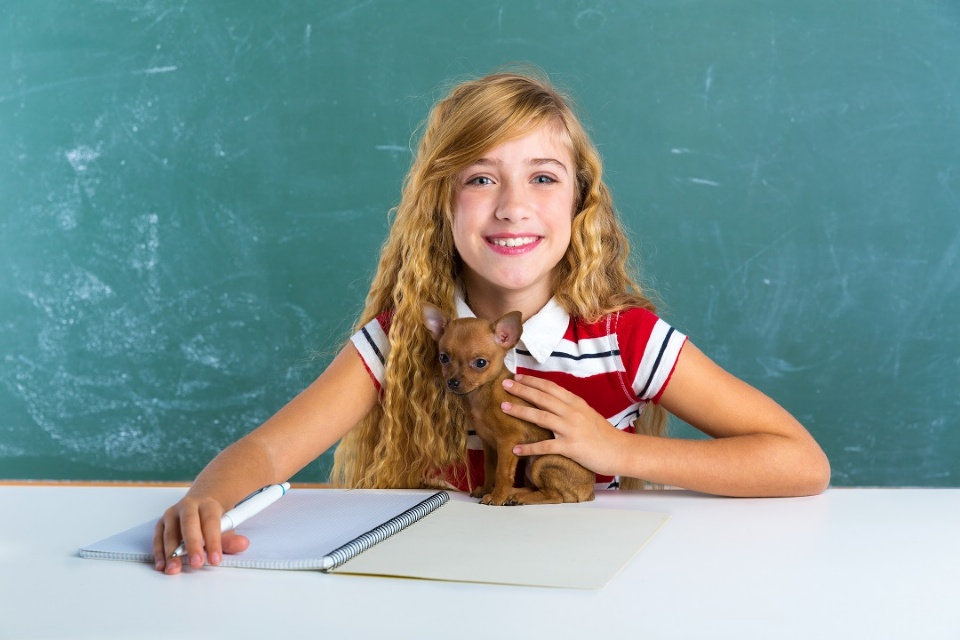Did you know that a pet in class could help students learn better and feel better?
“Educational zootherapy is an ideal intervention tool for children who struggle with low esteem, motivation and anxiety issues, as well as motor skills issues,” says Stéphane Francoeur from Zoothérapie Québec. “It’s really an added value to the regular educational program. School pets can offer new and innovative ways for the teacher to engage with kids and their educational material.”
At the request of the school, a qualified zootherapist accompanied by a dog collaborates with the teacher to make an intervention plan adapted to the students’ needs. Having a dog in class helps them develop their socialization and teamwork abilities and also soothes them and helps them regulate their emotions better. “Helping kids learn to read with a dog can help them manage their anxiety and their memory issues they struggle with when learning,” says Francoeur. The animal can also be used as a reward. If the students have good behavior for example, the teacher can promise the animal will visit them on a specific day.
The Assistant Director of La Mosaïque Primary School in the south-west of Montreal shared her enthusiasm about the program with Zoothérapie Québec. “The zootherapists from Zoothérapie Québec have helped our kids with language development, social abilities as well as with their fine motor skills,” she says. “We noticed an increase in self-esteem, better stress management as well as better social and emotional skills in kids who participated in the workshops with the dog.”
Zoothérapie Québec has noticed an increase in interest and motivation for learning activities like reading and writing when an animal is in the class. A class pet also helps to build trust between the students and with the teacher. In the presence of a dog, the students are more focused and more disciplined.
The dogs act as positive reinforcement to learn to be polite and respectful and lower the risk of frustration and aggression within the classroom. Teachers have observed less absence on the days where the pet is in the class. At home, parents notice that kids have better and more responsible behavior with their pets.
A Western Governor University study states that having pets in the classroom can enhance the learning environment. “A regular math lesson can turn into a unique learning opportunity when the problem focuses on how much food their classroom pet eats in a day or how much it weighs,” says the study researchers.
In a 2019 American Humane Research study, teachers with classroom pets reported significantly greater increases in overall social skills and improved academic reading competence. The Pets in the Classroom organization argues that interacting with classroom pets is an experience that can shape the lives of children for years to come.

 In The Latest Issue:
In The Latest Issue:


 BY:
BY: 



Tweet
Share